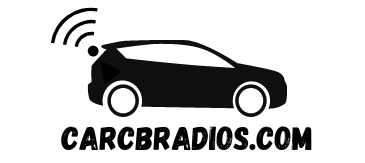By: Jeremy Neisser
As a communication tool, radios have been around for decades, and they have been used in various industries. Two of the most popular types of radios are VHF and CB radios. While both are used for communication, they have different features and use cases. In this article, I will compare VHF radio vs CB radio to help you understand which one is better suited for your needs.
VHF radio is a type of radio that operates on very high frequency bands. It is commonly used in marine and aviation industries due to its ability to transmit over long distances. On the other hand, CB radio operates on the citizens band, which is a public band that is open to all users. It is commonly used in trucks, RVs, and other vehicles.
When comparing VHF radio vs CB radio, there are several factors to consider, including range, frequency, and power output. Understanding these factors can help you decide which radio is best suited for your needs. In the following sections, we will dive deeper into the features and use cases of each type of radio.
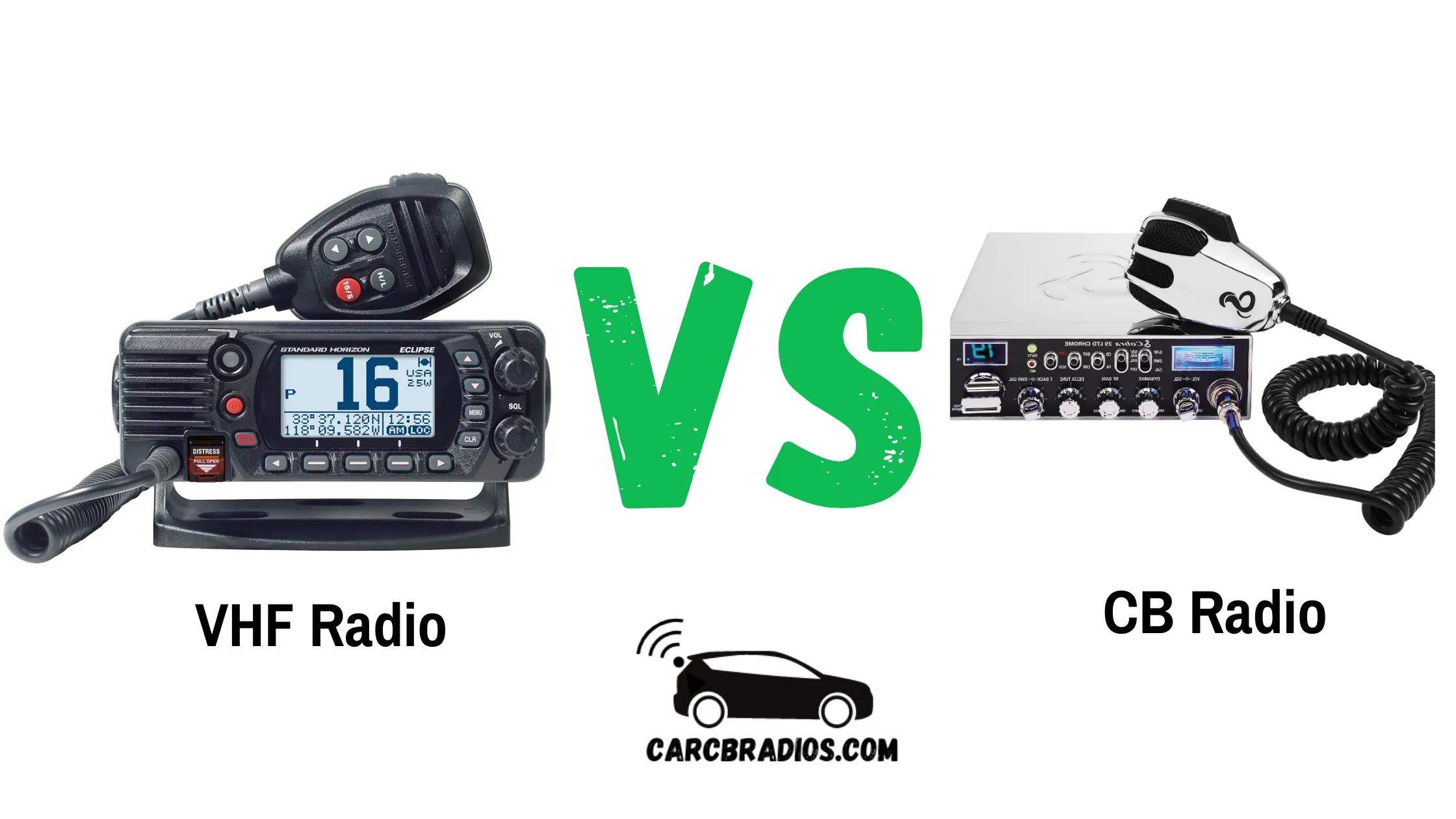
VHF Radio vs CB Radio Key Takeaways
VHF radio and CB radio are two popular types of radios used in different industries.
VHF radio operates on very high frequency bands and is commonly used in marine and aviation industries.
CB radio operates on the citizens band and is commonly used in trucks, RVs, and other vehicles.
Understanding VHF Radio
Basics of VHF Radio
VHF radio stands for Very High Frequency radio, which is a type of two-way radio communication system that uses radio waves in the frequency range of 30 MHz to 300 MHz. VHF radios are commonly used in maritime, aviation, and land mobile applications. They are particularly popular in the marine industry because they provide reliable and clear communication over a long range.
For example, here is a VHF radio found inside of a boat.
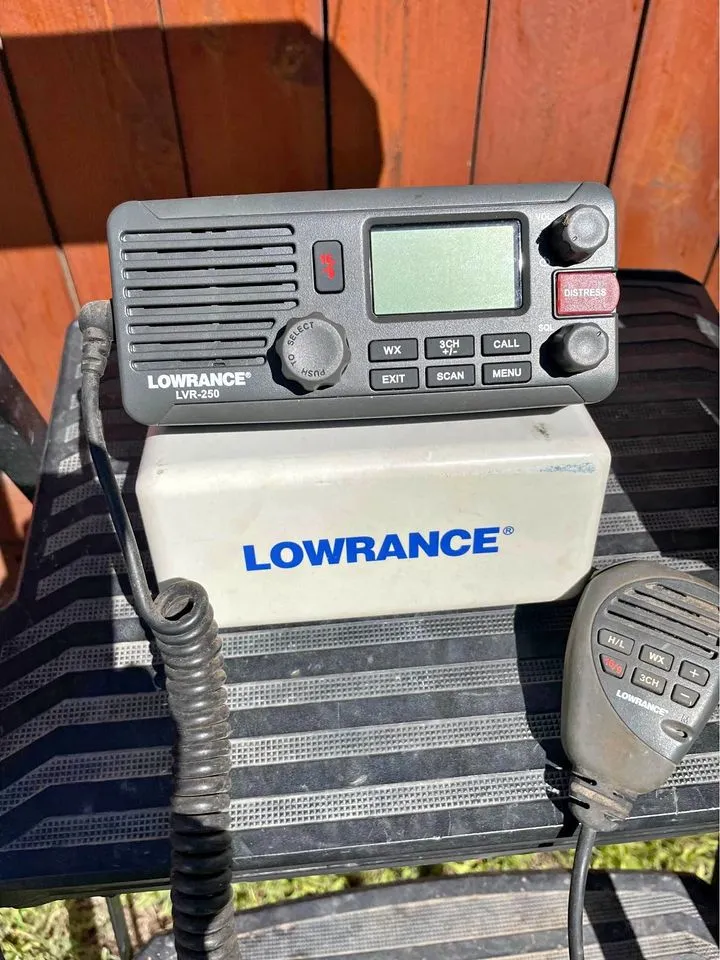
Benefits of VHF Radio
VHF radios have several benefits over other types of two-way radios, such as CB radios. Some of the benefits include:
Clearer communication: VHF radios use a higher frequency range than CB radios, which means they provide clearer and more reliable communication over a long range.
Longer range: VHF radios have a longer range than CB radios, which makes them ideal for use in maritime and aviation applications.
More channels: VHF radios have more channels than CB radios, which means they can accommodate more users and provide more flexibility in communication.
International standard: VHF radios are an international standard for maritime communication, which means they are widely used and recognized around the world.
Limitations of VHF Radio
While VHF radios have several benefits, they also have some limitations. Some of the limitations include:
Line-of-sight communication: VHF radios rely on line-of-sight communication, which means they require a clear view between the transmitting and receiving antennas. This can limit their range in certain situations, such as when communicating over rough terrain or through buildings.
Limited privacy: VHF radios are not encrypted, which means anyone with a VHF radio can listen in on the conversation. This can be a concern in certain situations, such as when discussing sensitive information.
Limited functionality: VHF radios are designed for voice communication only and do not support data or text messaging. This can be a limitation in certain applications, such as when sending detailed instructions or coordinates.
Overall, VHF radios are a reliable and effective communication tool for a variety of applications. They have several benefits over other types of two-way radios, such as CB radios, but also have some limitations that should be considered when choosing a communication system.
Understanding CB Radio
Basics of CB Radio
CB radio, or Citizens Band radio, is a type of two-way radio that operates on a set of 40 channels in the 27 MHz band. CB radios are popular among truckers, off-roaders, and other outdoor enthusiasts as they provide a reliable means of communication over short distances.
CB radios are relatively simple to use and require no license to operate. They are also affordable and widely available, with many models offering additional features such as weather alerts and channel scanning.
In the image below, my Cobra 29 LTD is a classic looking CB radio that fits in most cars and trucks. As yo can see, CB radios have a lot more features than VHF.
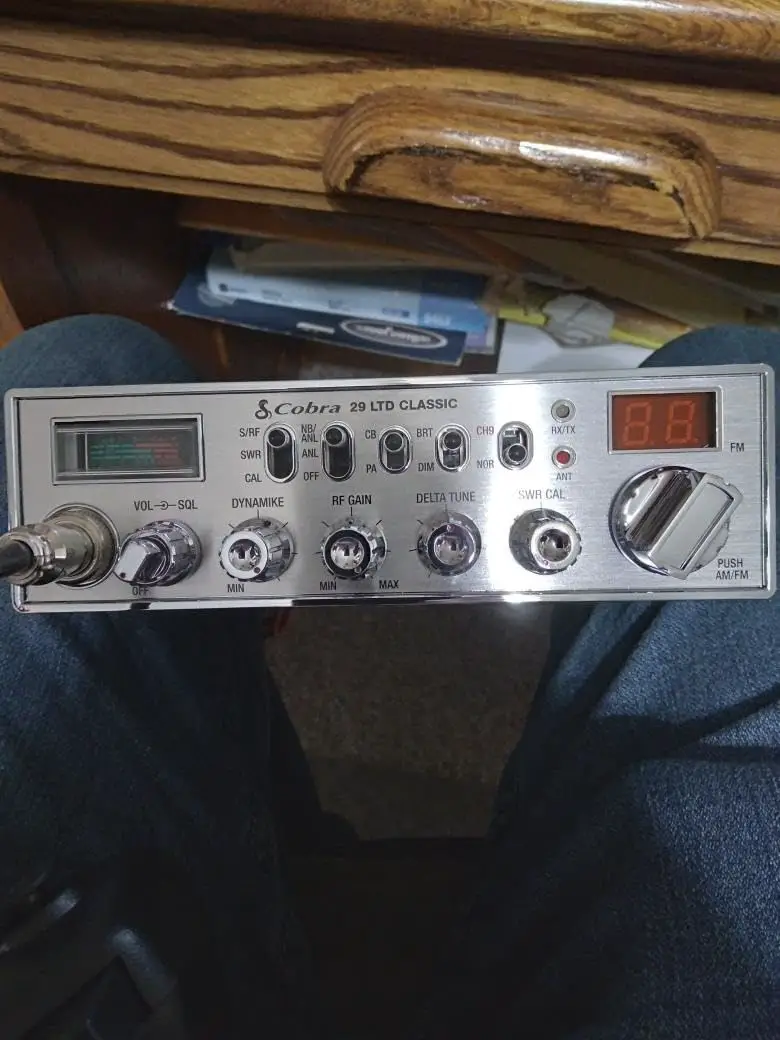
Benefits of CB Radio
One of the main benefits of CB radio is its simplicity. Unlike other types of two-way radios, CB radios require no special training or certification to operate. This makes them an accessible option for anyone looking to stay in touch with others over short distances.
CB radios are also reliable, with a range of up to several miles in ideal conditions. This makes them ideal for use in remote areas where cell phone coverage may be limited or non-existent.
Another benefit of CB radio is its ability to connect with other CB users, allowing for the formation of communities and networks. This can be especially useful in emergency situations where help may be needed quickly.
Limitations of CB Radio
While CB radio can be a useful tool, it does have its limitations. One of the main limitations is its range, which can be affected by factors such as terrain, weather, and interference from other radios.
CB radio is also limited to a set of 40 channels, which can become crowded during peak usage times. This can make it difficult to find an open channel for communication.
Finally, CB radio is not a secure means of communication and can be easily intercepted by others. This can be a concern for those who require more privacy in their communications.
In summary, CB radio is a simple and reliable means of communication over short distances. While it has limitations, it can be a useful tool for those who need to stay in touch with others in remote areas or during emergencies.
You May Like: Best CB Radios
VHF Radio Vs CB Radio: A Comparative Analysis
When it comes to communication tools for boating and off-road driving, two of the most popular options are VHF radio and CB radio. While both are useful in certain situations, they have significant differences that can make one more suitable than the other depending on your needs.
In this section, I will provide a comparative analysis of VHF radio and CB radio, focusing on four key factors: range comparison, channel availability, interference and clarity, and usage and licensing requirements.
Range Comparison
One of the most significant differences between VHF radio and CB radio is their range. VHF radio has a much longer range than CB radio, making it ideal for long-distance communication. VHF radio operates on a higher frequency range, which allows it to transmit signals over a longer distance. CB radio, on the other hand, has a relatively short range, making it more suitable for communicating over short distances.
Channel Availability
Another difference between VHF radio and CB radio is the availability of channels. VHF radio has a limited number of channels, which are reserved for specific purposes.
These channels are regulated by the Federal Communications Commission (FCC) and are used for marine and aviation communication. CB radio has more channels available, which are not regulated by the FCC. This means that CB radio users can communicate on any channel they choose, which can be both an advantage and a disadvantage.
Interference and Clarity
Interference and clarity are also important factors to consider when comparing VHF radio and CB radio. VHF radio is less susceptible to interference than CB radio, which can make it more reliable in certain situations. VHF radio also provides clearer communication, which is especially important in emergency situations where clear communication can be the difference between life and death.
CB radio, on the other hand, is more susceptible to interference, which can make communication difficult in certain situations.
Usage and Licensing Requirements
Finally, it is essential to consider the usage and licensing requirements of both VHF radio and CB radio. VHF radio requires a license to operate, which can be obtained by passing a test administered by the FCC.
CB radio, on the other hand, does not require a license to operate. However, CB radio users must follow certain rules and regulations set by the FCC, such as not using profanity or obscene language.
Both VHF radio and CB radio have their advantages and disadvantages. VHF radio has a longer range, clearer communication, and is less susceptible to interference, but requires a license to operate and has limited channels.
CB radio has more channels available, does not require a license to operate, but has a shorter range and is more susceptible to interference. Ultimately, the choice between VHF radio and CB radio depends on your specific needs and situation.
Use Cases: VHF Radio and CB Radio
Maritime Communication (on the Water)
I have found that VHF radios are the primary means of communication on the water. VHF radios are used for short-range communication between boats and with harbors, marinas, and the coast guard. They operate on frequencies between 156 and 174 MHz, and have a range of up to 25 nautical miles depending on the antenna height and atmospheric conditions.
On the other hand, CB radios are not commonly used in maritime communication. They operate on frequencies between 26.965 and 27.405 MHz, which are not suitable for long-range communication on the water. CB radios can be useful for communication between boats in close proximity, but VHF radios are the preferred choice for safety and emergency communication.
Land Based Communication
When it comes to land-based communication, both VHF radios and CB radios have their own use cases. VHF radios are commonly used by hikers, campers, and hunters for communication over short distances. They are also used by businesses such as construction companies, security firms, and transportation companies for communication between employees.
CB radios, on the other hand, are commonly used by truckers, off-road enthusiasts, and RVers for long-range communication. They operate on frequencies between 26.965 and 27.405 MHz, which can have a range of up to 10 miles or more depending on the antenna height and atmospheric conditions. CB radios are also used by emergency services such as police, fire, and rescue for communication between vehicles and command centers.
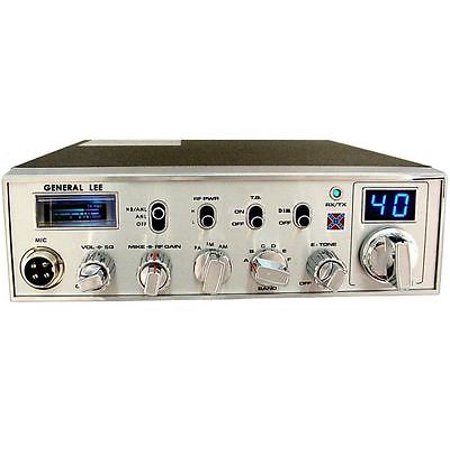
In summary, VHF radios are the preferred choice for maritime communication, while CB radios are more suitable for land-based communication over longer distances. Both types of radios have their own use cases, and it is important to choose the right radio for the task at hand.
Conclusion
In conclusion, both VHF radio and CB have their own unique benefits and drawbacks.
VHF radio is ideal for marine communication due to its long-range capabilities and clear signal quality. It is also easy to use and requires minimal setup. However, it is important to note that VHF radio requires a license to operate and is limited to marine communication only.
CB, on the other hand, is widely used in land-based communication and is popular among truckers and off-road enthusiasts. It is easy to set up and does not require a license to operate. However, its range is limited compared to VHF radio and the signal quality can be affected by external factors such as weather and terrain.
When deciding between VHF radio and CB, it is important to consider the intended use and environment. For marine communication, VHF radio is the clear choice. For land-based communication, CB is a popular and convenient option.
Ultimately, the choice between VHF radio and CB comes down to personal preference and specific communication needs.
Frequently Asked Questions
What are the advantages of using a VHF radio over a CB radio?
VHF radios have a longer range than CB radios, making them a better choice for marine use. They also have clearer sound quality and a wider range of channels available, which can be useful in emergency situations.
What are the differences between VHF and UHF radios?
VHF radios operate on a higher frequency than UHF radios, which means they have a longer range and are better suited for outdoor use. UHF radios, on the other hand, have a shorter range but are better suited for indoor use because they can penetrate walls and other obstacles more easily.
Is a handheld VHF radio better for marine use than a CB radio?
Yes, handheld VHF radios are better suited for marine use than CB radios because they have a longer range and clearer sound quality. They also have a wider range of channels available, which can be useful in emergency situations.
Can UHF radios communicate with CB radios?
No, UHF radios cannot communicate with CB radios because they operate on different frequencies.
What are the benefits of using a UHF radio instead of a CB radio?
UHF radios are better suited for indoor use because they can penetrate walls and other obstacles more easily than CB radios. They also have a shorter range, which can be an advantage in certain situations where you don't want your communication to be heard by others.
Are there any restrictions on using a VHF radio as a CB radio substitute?
Yes, there are restrictions on using a VHF radio as a CB radio substitute. VHF radios are regulated by the Federal Communications Commission (FCC) and can only be used for certain purposes, such as marine or aviation communication. Using a VHF radio as a CB radio substitute is illegal and can result in fines and other penalties.

Hi & Welcome!
My name is Jeremy and I have been an avid car nut for many year. My first car was an 1987 Honda CRX. I put in my first Kenwood stereo, amp, 2 10" JLs and a CB Radio in it and have been an avid user of CBs and car radios for years. I'll do my best to share my tips, information and thoughts to help you with whatever question you might have, ABOUT ME
After I graduated from High School, I worked 5 years are Radio Shack and 3 years at Circuit City answering questions and helping customers with various electronics questions.
